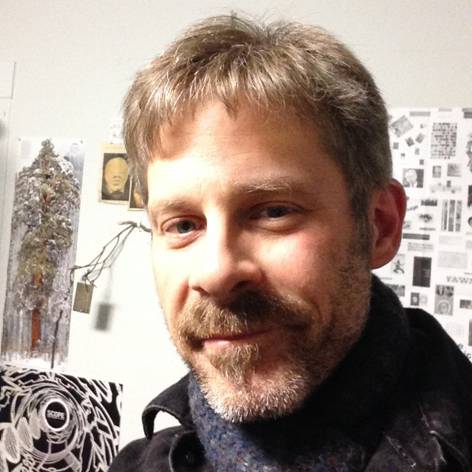 Matthew Battles is associate director of metaLAB at Harvard and a fellow at the Berkman Center for Internet and Society. He has written about the cultural dimensions of art, literature, science and technology for the American Scholar, the Atlantic, the Boston Globe, Harper's magazine and the New York Times. Battles has published extensively on the history and changing roles of libraries in culture. His book Library: An Unquiet History (Norton 2003) is appearing in a new edition this month, along with Palimpsest: A History of the Written Word (Norton, July 27, 2015), a cultural history of writing.
Matthew Battles is associate director of metaLAB at Harvard and a fellow at the Berkman Center for Internet and Society. He has written about the cultural dimensions of art, literature, science and technology for the American Scholar, the Atlantic, the Boston Globe, Harper's magazine and the New York Times. Battles has published extensively on the history and changing roles of libraries in culture. His book Library: An Unquiet History (Norton 2003) is appearing in a new edition this month, along with Palimpsest: A History of the Written Word (Norton, July 27, 2015), a cultural history of writing.
On your nightstand now:
This makes for an embarrassing start: I have a pair of 18-inch-tall piles of books on my nightstand, bracketing the lamp. They're so tall they hide the lamp, so that it's nearly too dark to read. Active titles include Don DeLillo's Underworld, Open Sky by Paul Virilio, A Thousand Years of Nonlinear History by Manuel De Landa, The Mara Crossing by poet Ruth Padel and Hugh Raffles's remarkable Insectopedia, a surprising, sensitive exploration of intersections between human and insect realms.
Favorite book when you were a child:
The World Book Encyclopedia. It was the 1959 edition, already 10 years old when I was born, and it was Internet enough for 11-year-old me.
Your top five authors:
Jorge Luis Borges, Herman Melville, Edgar Allan Poe, Emily Dickinson and Tove Jansson.
Book you've faked reading:
Swann's Way--if the fake-read-novel is a genre, then Marcel Proust's work is its locus classicus.
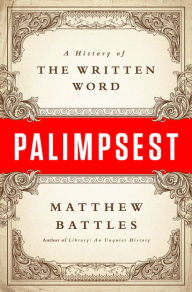 Book you're an evangelist for:
Book you're an evangelist for:
I'll mention three: The Mountain Lion by Jean Stafford, with mesmerizing descriptions of natural scenes and a story that tenderly, savagely turns on the broken love of a brother and sister; Tove Jansson's The True Deceiver, a short novel for adults by the creator of the Moomintroll series of children's books; and J.A. Baker's The Peregrine, an account of natural-history observation which elides distinctions between narrator and nature. All three are published by New York Review Books, which makes me an NYRB evangelist as well.
Book you've bought for the cover:
I recently picked up in the library a 1937 Penguin edition of The Worst Journey in the World, Apsley Cherry-Garrard's account of the ill-fated Scott expedition to Antarctica in 1912. I love the nonchalance of the little dancing penguin on the cover--the Antarctic creature at home in a place of such debilitating difficulty for human beings. I didn't buy it--I'm happy to take it out of the library. But I would buy it for the cover alone; the penguin abides....
Book that changed your life:
Jorge Luis Borges's Ficciones showed me how to do what I do as a writer (though I could never do it half as well).
Favorite line from a book:
"A Letter is a Joy of Earth/ It is denied the Gods." That's Emily Dickinson, a line she included in several letters, which ended up published as a poem. She reminds us how literature unfolds in time, the stream in which we're all swept up. Mortality and temporality that limit us, but also make things like letters and books delicious.
Which character you most relate to:
Melville's Ishmael--I sense the sort of "loomings" the narrator of Moby Dick feels, and like Ishmael I seem to find myself at once in the midst of things yet looking in as if from outside or down from above, to watch, wonder and comment.
Book you most want to read again for the first time:
I'd like to read Gawain and the Green Knight, not as a scholarly project in decoding Middle English, but as a reader for whom it's a living text--to read it as its first reader, I suppose!
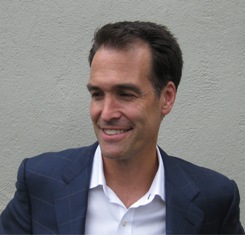











 Dog-Eared Books
Dog-Eared Books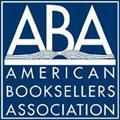 The American Booksellers Association has
The American Booksellers Association has 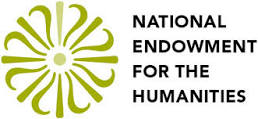 The National Endowment for the Humanities has announced $1.7 million in grants to enable the publication of 36 nonfiction books "that will bring important humanities scholarship into book clubs and onto bestseller lists." These are the first awards made under NEH's new
The National Endowment for the Humanities has announced $1.7 million in grants to enable the publication of 36 nonfiction books "that will bring important humanities scholarship into book clubs and onto bestseller lists." These are the first awards made under NEH's new 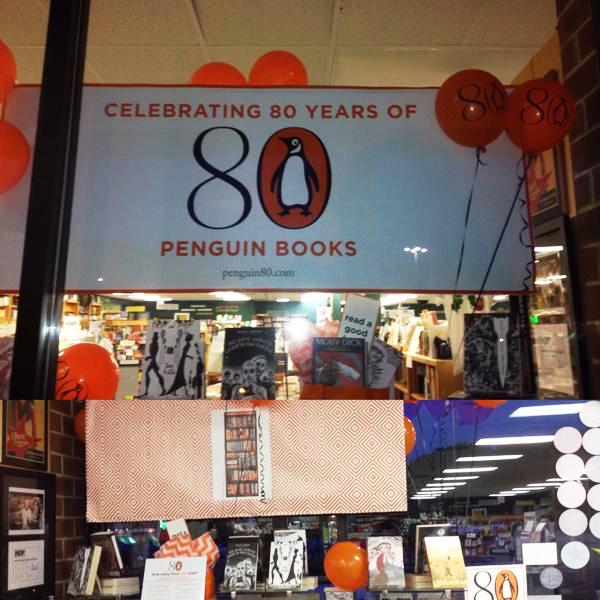

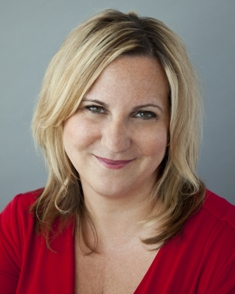
 Benedict Cumberbatch will play the lead role in Shakespeare's
Benedict Cumberbatch will play the lead role in Shakespeare's  Matthew Battles
Matthew Battles Book you're an evangelist for:
Book you're an evangelist for: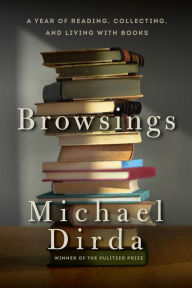 In February 2012, longtime Washington Post book critic Michael Dirda (Classics for Pleasure) replaced the legendary William Zinsser as weekly columnist for the American Scholar website. The 52 pieces collected in Browsings, which are the product of that assignment, shine with Dirda's passion for books, both as a reader and a collector, and are certain to delight any bibliophile.
In February 2012, longtime Washington Post book critic Michael Dirda (Classics for Pleasure) replaced the legendary William Zinsser as weekly columnist for the American Scholar website. The 52 pieces collected in Browsings, which are the product of that assignment, shine with Dirda's passion for books, both as a reader and a collector, and are certain to delight any bibliophile.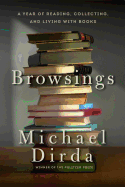

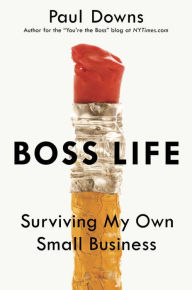
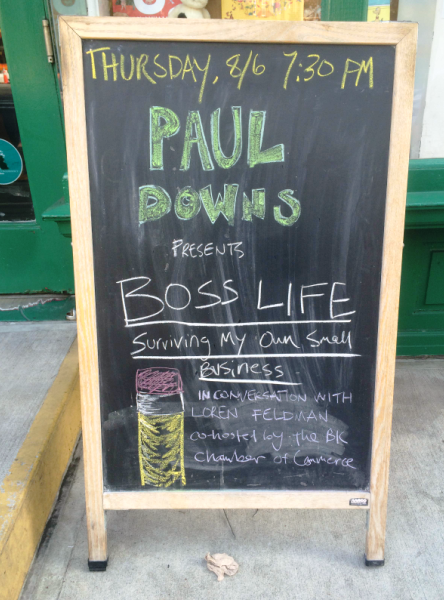 For Fitting, the "boss life" experience has come "a bit full circle now. Greenlight turns six this fall and we're in a place where we need to reinvent our infrastructure again to adjust to the change in our marketplace, and (thankfully) to adjust for growth. We're creating new positions, we're (yet again) considering how health insurance may or may not fit into the mix, and as there's all this national talk about the minimum wage and the fast food minimum wage, Jessica and I are having a lot of conversations about what kind of employer we want to be in terms of how we pay our staff. It's such a difficult balance--to be an employer that pays at a living wage but to also be a retailer in a set cost industry, and these are not light decisions."
For Fitting, the "boss life" experience has come "a bit full circle now. Greenlight turns six this fall and we're in a place where we need to reinvent our infrastructure again to adjust to the change in our marketplace, and (thankfully) to adjust for growth. We're creating new positions, we're (yet again) considering how health insurance may or may not fit into the mix, and as there's all this national talk about the minimum wage and the fast food minimum wage, Jessica and I are having a lot of conversations about what kind of employer we want to be in terms of how we pay our staff. It's such a difficult balance--to be an employer that pays at a living wage but to also be a retailer in a set cost industry, and these are not light decisions."